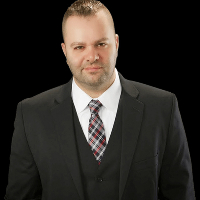Upperco Criminal Lawyer, Maryland
Sponsored Law Firm
-
 x
x

Click For More Info:
-
Roper & DiBlasio LLP
401 Headquarters Dr Ste 202 Millersville, MD 21108» view mapDivorce and Family Law Our Mission is Your Success
Roper & DiBlasio is a general practice law firm working within the local community to assist businesses, homeowners, and individuals with their legal needs.
800-785-7781
Chelsey Seger
✓ VERIFIEDCriminal, US Courts
Chelsey Seger is a practicing lawyer in the state of Maryland handling criminal defense matters.
Harold Dwin
Workers' Compensation, Divorce & Family Law, Criminal, Accident & Injury
FREE CONSULTATION
CONTACTGerard Francis Miles
Family Law, Divorce & Family Law, Criminal, Accident & Injury
Status: In Good Standing
Craig Marshall Gendler
Employment, Criminal, Accident & Injury, Litigation
Status: In Good Standing Licensed: 45 Years
 Kurt Roper Millersville, MD
Kurt Roper Millersville, MD Practice AreasExpertise
Practice AreasExpertise


